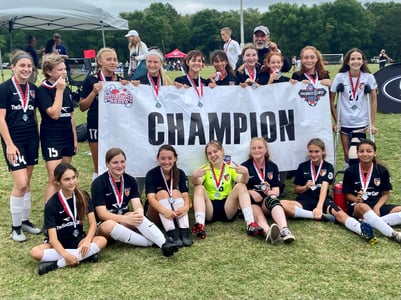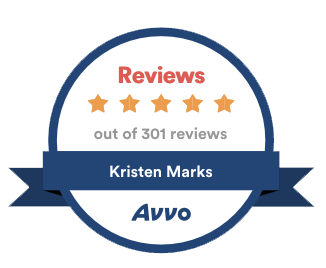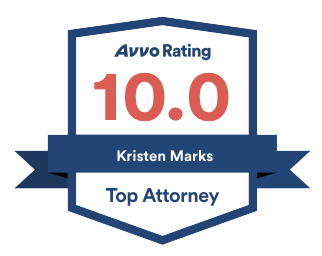“YOU NEED TO TEACH YOUR 12-YEAR-OLD NOT TO PUSH IN THE BACK!”
It was the first half of a U13 girls soccer game in a regional tournament and there had just been a foul on the play. One of our players collided with a player from the opposing team, knocking her clear off her feet and face down on the field.
The referee immediately flashed a yellow card for our player and our coach to see.
A second yellow card went up to the downed opponent for unsportsmanlike conduct after the fall.
A woman I can only presume was the opponent’s mother stormed over to one of the mothers on our team and began a verbal assault that left me wondering if what I was watching was actually happening.
“We are the parents. Go talk to the coaches!” piped up a 10-year-old sibling in defense of her mom.
The woman eventually retreated to the parking lot to watch the remainder of the game from her car while the other team's parents continued to bark snide remarks that left me bewildered.
At half-time, the opposing team’s coach marched down the field towards the team’s parent section.
“I drew the short stick. We can’t have the language I’m hearing about. ‘Good work, girls’ or “Keep it up, girls’ is all we need to hear or nothing at all.”
The second half of the game was quiet. Our girls won that game 5:1 and ended up taking first place in their division of the tournament. Go Texans!

I was introduced to the world of select travel soccer about a year and a half ago.
Three things have surprised me about soccer:
- The girls’ advanced talent at such a young age;
- The intensely physical nature of soccer; and
- The parents.
I have been the most surprised by the parents.
I’ve watched a dad THROW a chair onto the field, yell obscenities, and threaten the referee that he would be “waiting in the parking lot” after being ejected from a game.
I’ve seen a verbal altercation between two fathers that nearly turned physical before being broken up in the parking lot.
I’ve listened to a mom tell one of our players that she is “disgusted” with her.
What happened to sports as a way to keep the kids active and teach them about commitment and teamwork?
As a stepmom without a biological child on the field, I think I am in a unique, neutral position to observe the near metamorphosis some parents make from really nice folks away from the sports fields to questionable role models for their impressionable kids.
And the kids are listening!
At 12 years old, there are no college scouts standing watch with scholarships in hand. And even if there were, why does soccer bring out the worst in some people?
Unfortunately, another place I’ve seen discourtesy is in my probate practice. Although I do not handle any contested probate cases, I have consulted with families that have struggled to get along after the loss of a loved one.
Family relationships can be especially strained when someone dies without a will (an “intestate” estate).
In an intestate estate, Florida law decides the distribution of the decedent’s property.
Estranged children may be entitled to the same share of the decedent’s estate as other children who cared for the decedent in his or her final days of illness.
Members of blended families may not be provided for in the way the decedent intended.
In some cases, I can act as a conduit for information between family members who agree about the division of property, whether by will or intestate laws, but simply prefer not to communicate with one another.
In other cases, the family may be better served by a referral to one of my colleagues who handles probate litigation.
We are all going to have times in life when there are issues or people we disagree with. Whether it is on the soccer field, at work, or in your home, remember to always be kind. You catch more flies with honey!
Lauren "Please Never Accuse Me of Being a Soccer Mom!" Merritt
If you have recently lost a loved one and are looking for direction with next steps, download our FREE Survivor Checklist below. The Survivor Checklist is also a good resource to print and keep with your estate planning documents so it is available to your loved ones when the time comes. You can find the checklist at the link below:
We also offer a FREE Guardian Advocacy report. If you are interested in learning more about how you can protect the rights of your special needs child once he or she becomes an adult, the Guardian Advocacy Report is located at the link below:
If you have questions about probate or guardianship, please feel free to send me an email using the link below or call our office at (850) 741-2999. We would love to find out how we can help you.









